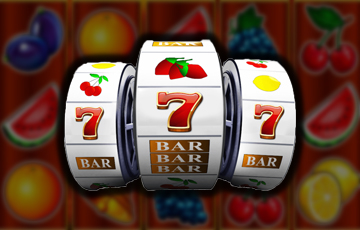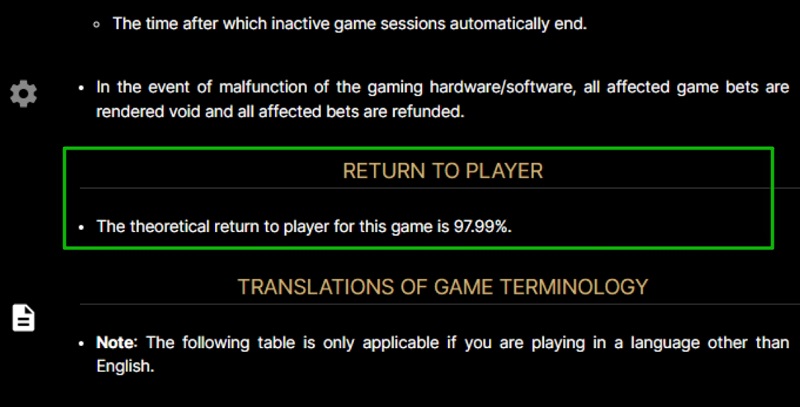Slot Machine Mathematics

Slot machine mathematics that every player would love to decipher, but this encrypted puzzle is something that eludes most. If we knew all the inner workings of slot games, we’d have a crystal-clear understanding of how we could (and arguably should) win. However, even math geniuses can’t predict what a slot will do because of the way the algorithms and random number generators work to ensure fairness and, as the name implies, randomness on each spin.
Fortunately, there are some breadcrumbs for us to follow regarding slot mathematics, and it is these that give us an inkling of how slot math works. Join us as we explain all right here.
Slot Machine Math Guide
It is fair to say that there are quite a few people studying slot machine probability mathematics in the USA. However, even if they were to have some success in the field, they aren’t likely to share their tips and strategies. After all, if the secret to winning became common knowledge, casinos would change their systems.
Slot mathematics (in the eyes of the public) is less about discovering the secret of winning and more about learning how slot machines work.
While we are never going to figure out the precise algorithms used to determine winning spins from non-winning spins, there are things we can understand about slot mathematics to improve our chances.
Algorithms are mathematical instructions (akin to coding) that tell a slot machine what to do on each spin. They are designed to deliver a random outcome on each spin, and this ensures fairness to both the casino and the players. Volatility, house edges, RTP rates, and RNGs all play their part in making this happen. Let’s look at these key ingredients next to see what we can learn about playing slots online.

Slot Machine Probability, Mathematics of Winning
You can trust that the best online slots are fair because they give you a reasonable shot at winning. However, that doesn’t always equate to a truly random chance of success. Each algorithm has parameters that come into play. First, let’s discuss volatility before looking at some of the other major aspects of slot mathematics.
Most of you will already know that volatility determines how frequently a slot pays out and what sorts of winnings it delivers. Highly volatile games are not known for paying out regularly. However, the wins they do provide (which they eventually cough up the goods) are usually sizable. By contrast, a slot with low variance will pay regularly, but the wins delivered will often be petite.
By understanding volatility, we can gauge two things about slot mathematics. Highly volatile games require a big balance to see you through losing spells so that you can sustain losses until the next big win evens out your balance.
Low-variance games keep your balance intact (for the most part) by providing regular small-scale wins, and they are, therefore, ideal for players on small budgets.
What about the other slot mathematics aspects, though? Let’s look at those next.
Random Number Generator
Random number generators help a slot ensure fairness by providing a random outcome on each spin. Of course, RNGs (as they are known) aren’t truly random. A slot will have instructions to ensure that top-paying combos occur less frequently than low-value ones. For instance, algorithms will tell a slot to showcase low-value symbols more frequently than higher-paying ones, ensuring that it is trickier to land the biggest prizes than smaller ones. However, because the game doesn’t actively decide “when” combos land and “which” ones they are, the random element to RNGs is fair.
Return to Player (RTP) Explained
RTP refers to the amount of money that goes back into a pot for players to win. The opposite side of the coin is house edge – the amount the casino takes in pure profit from each bet. When discussing the Return to Player rate, the higher the percentage, the better for players.
NetEnt slots have some of the highest RTP rates around – some hit heights of 97%. This means that for every $1 you bet, $0.97 goes into a pot for all players to win, while $0.03 is snapped up by the casino as profit.

What Is Weighted Average Theoretical Percentage (WATP)
RTP (sometimes noted as TRTP or Theoretical Return to Player) is the amount of payback found in a game over time. However, WATP (Weighted Average Theoretical Percentage) considers several games, different stakes, and other elements. For instance, some game cabinets (in land-based casinos) support several games, each with its own RTP. The WATP calculates all the possible bets you can make, payouts and RTPs and comes with an “overall RTP” for the cabinet or collection of games. This is known as WATP.
House Edge
House edge, as mentioned, is the opposite side of RTP. House edge is defined as the amount of each bet that an internet casino will likely take in pure profit. For instance, if a game has a house edge of 5%, its RTP is 95%, and vice-versa. In slots, there is nothing you can do to adjust the house’s edge. However, in table games, using specific strategies and playing in certain ways can see you lower the house’s edge on you.
Below you will find a table that reveals the average house edge you can expect to see in popular table games and the lowest you can cut that house edge down by if you choose to play in a specific way.
| Table Game | Average House Edge | Lowest House Edge |
|---|---|---|
| Baccarat | 1.24% (Player Hand) | 1.06% (Playing the Banker’s hand) |
| Blackjack | 2% | 1.5 to 0.5% (using Basic Strategy) |
| Caribbean Stud Poker | 5.22% | – |
| Keno | 25 to 29% | -12% (selected online keno games) |
| Let It Ride | 3.51% | – |
| Pai Gow Poker | 1.50% | 1.46% (strategic betting) |
| Roulette | 2.70 to 5.26% | 1.35% (French Roulette) |
| Sic Bo | 2.78 to 33.33% | – |
Mathematical Model of Slot Machines
Given that much of a slot machine’s gameplay relies on randomness, with RNGs generating random outcomes roughly every 50 milliseconds (even when the reels aren’t spinning), it is near impossible to predict a spin. Therefore, you may be wondering, where does slot machine math come in? Probability, of course.
Calculating the probability of a slot machine is no small feat. You need to know several things. Firstly, you’re going to need to know the number of possible combos/outcomes (winning spins and non-winning spins), whether each combo has the same chance of being landed as others (they usually don’t), and you’re going to need to know the number of outcomes where wins can occur.
You must then divide the chance of winning (with a specific combo) by the number of possible combinations available. If you try it, you’ll see that your odds aren’t great. Moreover, most of this information won’t be available to you, making it mightily difficult to use slot math to predict slot probability.
How to Win Money at Slots
Despite the seemingly impossible task of trying to use slot math to boost your odds of winning, there are things you do to improve your chances of success. Here are just a few of them:
- Play free slots. These will let you practice (without risk) and get a good idea of how a game works before you spend real money on it.
- Head to the software developers’ web pages, where you can usually find information about how the game is designed.
- The paytable in slots will help you understand how likely symbol combos are and showcase the variance and volatility of games alongside their RTP rates.
- Only play RNG-certified games. These are proven to be fair and have been tested to ensure that they aren’t rigged.
Slot Machine Mathematics vs Table Game Odds
Most people are aware that slot machine mathematics for USA players offer far worse odds of success than table game odds.
Because table games aren’t patented and licensed software (they are open to everybody), you can do all sorts of experiments at home and find all manner of information online.
Most table games have lower house edges than slots (there are exceptions, as you can see if you check the table above). Moreover, you can use strategies and betting systems to lower the house edge further, boosting your odds of success. Land-based table games can also be cheated to a degree, such as by card counting. While you aren’t likely to benefit from this when playing online table games (which also use RNGs to shuffle the decks after each hand), you can still deploy long-established strategies to improve your odds. As slot mathematics only reveals probability and doesn’t improve your chances of success, table games are arguably easier to get a handle on.
Why Should I Pay Attention to Slot Mathematics When Gambling?
Whether you choose to pay any notice of slot mathematics at all is down to you. However, if you want to become a better player, you certainly should. Here are some other compelling reasons to study slot maths when gambling:
- Studying slot mathematics will enable you to understand how slots work.
- In some games, slot maths will help you discover the probability of success with selected bets or any bets.
- You can use slot mathematics to work out the best bets to wager on in each game.
- Gambling mathematics in general can also be applied to sports betting, poker and other games.
- If you don’t understand probability and odds, you’re essentially going into a game destined to lose.
- There are dozens of free tools and calculators out there to help newbies, so there’s no reason not to research slot mathematics.


